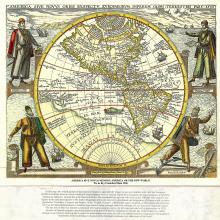indigenous rights
If God tends to the lilies of the field, how much more will God protect the poor and oppressed (Matthew 6:25-34)? This is the correct definition of divine providence: God cares for, loves, and empathizes with the meek who will one day inherit the earth. This is the providence that theologian James H. Cone imagined in his seminal work God of the Oppressed: “God has not ever, no not ever, left the oppressed alone in struggle. He was with them in Pharaoh’s Egypt, is with them in America, Africa, and Latin America, and will come in the end of time to consummate fully their human freedom.”
IT MIGHT NOT be a violation of professional legal ethics to participate in the Roman Catholic Church’s campaign to escape financial responsibility for the genocide of Indigenous peoples in Canada and the United States. But it is a violation of Christian ethics. And for Christian attorneys, the latter should take priority.
The Catholic Church is not the only Christian denomination from which survivors of abuse in church-run residential schools are demanding justice. Episcopalian and Anglican, Methodist, Presbyterian, and other churches also ran residential schools in North America. However, the Catholic Church ran nearly three-quarters of the residential schools in Canada and more than 20 percent of the 367 Indian boarding schools in the United States. Since May, more than 1,300 suspected graves have been identified near five former Indian residential schools in British Columbia, Manitoba, and Saskatchewan. Four of those were run by Catholic institutions.But thanks to the Catholic Church’s lawyers, it has largely succeeded at avoiding financial accountability for its legacy of violence.
Juanita Cabrera Lopez, executive director of the International Mayan League and one of the organizers of the rally, said conditions have worsened since the nationwide protest against family separation last June. After the photo of a drowned Salvadoran father and daughter was published last week, Lopez said, the community became even more outraged.
“However, we are resilient and refuse to allow President Trump’s unlawful decision to discourage us. We will continue to fight in honor of our ancestral warriors who fought for our way of life, for our culture and for our land too.
The Commission was tasked with determining whether the project is in the state's interest, but was prohibited from evaluating environmental issues because the pipeline already has an environmental permit.
Though the Obama administration rejected the project in 2015 on environmental grounds, President Trump reversed the decision in March 2017, saying the construction of the pipeline would produce increased jobs and decreased fuel prices. The reversal of the decision has been met with staunch opposition by those fighting for environmenal justice and indigenous rights.
Does Pope Francis have a position on the Dakota Access Pipeline?
That’s one question he hasn’t been asked, and he might demur if pressed on such a specific issue. But in his landmark encyclical on the environment published last year, and in other statements, Francis has strongly supported arguments of the Native American-led resistance movement on three core issues: indigenous rights, water rights and protection of creation.

Image via Wikimedia Commons
I had been anticipating Pope Francis’ speech to a joint session of Congress ever since I learned it was planned. From the beginning of his papacy, Pope Francis has established himself as a fearless advocate for the least, and an unapologetic prophet to both the church and the nations. A leader who shunned the glitter of the Apostolic Palace for the simplicity of a small guesthouse. A people’s pope who rebuked the rich and ate with the poor, and scolded the extravagance of the industrialized world as he drove through it in a fuel-efficient Fiat.
What words would this leader have for the Congress of the most wealthy, militarily powerful, commercially industrialized, colonial nation in the history of the world? The possibilities seemed endless.





